| All Artists: John Coltrane Title: Coltrane Time Members Wishing: 3 Total Copies: 0 Label: Blue Note Records Release Date: 6/18/1991 Genres: Jazz, Pop Styles: Avant Garde & Free Jazz, Bebop Number of Discs: 1 SwapaCD Credits: 1 UPC: 077778446125 |
Search - John Coltrane :: Coltrane Time
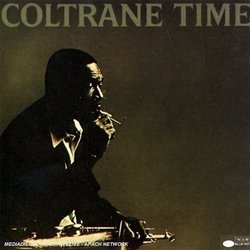 | John Coltrane Coltrane Time Genres: Jazz, Pop
Japanese version featuring a limited LP style sleeve. 24 bit digitally remastered. |
Larger Image |
CD DetailsSynopsis
Album Details Japanese version featuring a limited LP style sleeve. 24 bit digitally remastered. Similar CDs
Similarly Requested CDs
|
CD ReviewsA collaboration that should have worked but fails. Michael Stack | North Chelmsford, MA USA | 06/21/2005 (1 out of 5 stars) "A disaster of a record, "Coltrane Time" by John Coltrane is actually a reissue of an album called "Hard Driving Jazz" by Cecil Taylor. Apparently, someone thought it was a good idea to get some more diverse New York City musicians to play with Taylor, and so he is joined on this session by trumpeter Kenny Dorham, John Coltrane (at this point only on tenor), bassist Chuck Isreals, and drummer Louis Hayes. It seems as if there was a concrete effort on the part of the majority of the musicians and the producer to ignore Taylor's concepts. Taylor is mixed down way below the rest of the musicians and is difficult to hear when a horn (or two plays)-- Isreals and Hayes stick to standard bop rhythm figures throughout the record, and Dorham is decidingly restrained-- as though challenging the music to be less like Taylor and more like the bop he wanted to play. Only Coltrane makes any effort at reaching towards Taylor, but seems largely unable to figure out how to fit himself into this. For his part, Taylor is notably restrained himself (although he does play somewhat ferociously when he solos on the mid-tempo plodder "Shifting Down"), likely in response to the music. In summary, this is truthfully close to unlistenable-- if you come at it as a Taylor fan, you'll be disappointed by the lack of fire in the musicians and the unsympathetic support, if you approach it as a Coltrane fan, you're likely to find little to mark his evolution. If by some chance you come at it as a Kenny Dorham (or bop in general) fan, you'll find this to be a frustration as Taylor sounds positively manic in trying to find his place. For collectors/completionists only." Subtle quintet Evan Chandlee | Paris, France | 08/26/2005 (4 out of 5 stars) " This was Kenny Dorham's sole 5tet date with Coltrane, and he was inspired. No way complications with the pianist were going to get in the way of this unique session. KD didn't like "free" players, but it would be absurd to suggest that Cecil Taylor's "outside" harmonies would be any problem for him. Dorham made no claims as a virtuoso, but was unequivocal concerning his strong point: harmony. He felt he could deal with any harmony, whatever the changes; witness his work alongside Eric Dolphy on Andrew Hill's "Point of Departure". Louis Hayes and Chuck Israels give superb support and linkage. We find Coltrane working with the figures that would soon provide the climax of this period, with a few dates with Miles yet to come, before the quartet and My Favorite Things. " Trane and Taylor Stand Up and Out Douglas Groothuis | 03/18/2007 (4 out of 5 stars) "Trane was still doing a lot of session work at this time (when not with Miles), but this was different from the rest. The recording was originally released under pianist, Cecil Taylor's name in 1959, but rereleased under the Coltrane banner in 1962, since his stock was rising.
There are two remarkable things about this outing: Trane and Taylor. The other musicians are rather pedestrian. Trane, of course, never is. Taylor is known for his dissonance, rhythmatic idiosyncracies, and general unpredictability, which are all on display here. He sounds way out of touch with the other musicians at times. They are one one wave length; he is on another. Yet few pianists at this time were taking these kinds of chances and stretching limits. Herbie Hancock would do so later, but always with a strong melodic sense, which is lacking in Taylor. Keith Jarrett appeared a bit after Herbie and is a unique category. For the Coltrane completist, this is a must. Trane is not phased by Talyor's oddities, and swings madly. For others, there are better outings to chose from, such as all the classic quartet work from 1960-65. But if you start there, you might come back here." |

 Track Listings (4) - Disc #1
Track Listings (4) - Disc #1
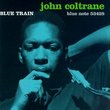
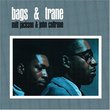
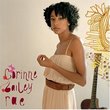

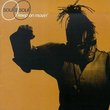
![Every Breath You Take: The Singles [Greatest Hits]](https://nationalbookswap.com/cd//m/80/2080/13142080.jpg)